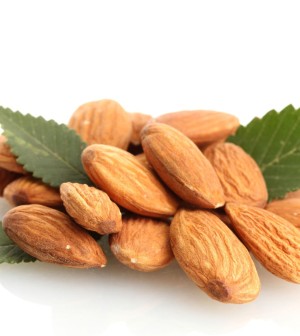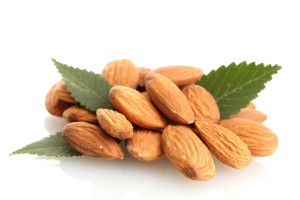- Could Your Grocery Store Meat Be Causing Recurring UTIs?
- Are You Making This Expensive Thermostat Error This Winter?
- Recognizing the Signs of Hypothyroidism
- 10 Strategies to Overcome Insomnia
- Could Artificial Sweeteners Be Aging the Brain Faster?
- Techniques for Soothing Your Nervous System
- Does the Water in Your House Smell Funny? Here’s Why
- Can a Daily Dose of Apple Cider Vinegar Actually Aid Weight Loss?
- 6 Health Beverages That Can Actually Spike Your Blood Sugar
- Treatment Options for Social Anxiety Disorder
HIGH-PROTEIN SNACKS CAN HELP CURB APPETITE, MU STUDY FINDS

 Each day, countless Americans grab an afternoon snack to tide them over until dinner. Now, research from the University of Missouri shows that snacking on higher-protein foods, such as certain types of Greek yogurt, can increase fullness and the amount of time between meals.
Each day, countless Americans grab an afternoon snack to tide them over until dinner. Now, research from the University of Missouri shows that snacking on higher-protein foods, such as certain types of Greek yogurt, can increase fullness and the amount of time between meals.
“The rise in obesity in the United States has closely mirrored an increase in snacking among adults,†said Heather Leidy, author of the study and an assistant professor in the MU Department of Nutrition and Exercise Physiology. “Experts have known for a while that eating meals high in protein can help people lose weight and keep it off. Because snacking is so common, we wanted to see whether high-protein snacks would help people control their appetites — an important factor in weight management.â€
To examine the effect on hunger of eating protein-rich snacks, researchers studied a group of healthy women, ages 24 to 28, who ate three different types of yogurt versus no snack. One of the snacks was traditional yogurt with a relatively low amount of protein (five grams). The other two snacks were Greek-style yogurts that contained either a moderate amount of protein (14 grams) or a high amount of protein (24 grams). Each yogurt snack contained 160 calories.
The day of each test, the participants ate the same breakfast of a quesadilla and fruit, then a sandwich, chips and applesauce for lunch. Three hours after lunch, the participants ate either no snack, or a low-, medium- or high-protein yogurt snack. Every 30 minutes after the snack, the participants completed questionnaires to determine their hunger, fullness and whether they were ready for dinner.
Consuming the high-protein Greek yogurt snack had the greatest effect. After eating the snack, participants felt full the longest and took longest amount of time to request dinner, which was three hours after lunch. The effect after eating low- or medium-protein snacks was smaller than with high-protein yogurt, but participants still stayed full longer and took more time to feel hungry after eating a low- or medium-protein snack than after eating no snack. After eating a low- or medium-protein snack, they also took longer to request dinner — two and a half hours after snack time, compared to two hours after having no snack.
“These results show low-, medium- and high-protein snacks all increase the length of time before a person feels hungry again,†Leidy said. “But if you are looking to feel full and stave off hunger for the longest, you should eat a snack with at least 24 grams of protein.â€
Leidy suggests using plain-flavored yogurts and sweetening them with fruit and granola instead of pre-flavored yogurts, which usually are high in sugar and calories. She also recommends checking nutrition labels because single-serving yogurt packages usually don’t contain 24 grams of protein, so you may need to eat more than one serving. The body doesn’t appear to recognize snacks of less than 160 calories, so they won’t help control hunger, Leidy said.
The article, “Low, Moderate, or High Protein Yogurt Snacks on Appetite Control and Subsequent Eating in Healthy Women,†was published in the journal Appetite.
The Department of Nutrition and Exercise Physiology is a joint effort by MU’s College of Agriculture, Food and Natural Resources; College of Human Environmental Sciences; and School of Medicine.










